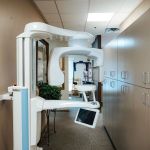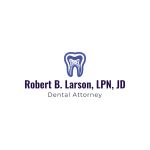Why Your Smile May Be Making You Look Older
We all know that a genuine smile can light up a room, but did you know that the way you smile might actually be contributing to an older appearance? It's not just about the age lines around your eyes or the wrinkles on your forehead. Your smile – the way you move your mouth and lips – can play a significant role in how old you look. Let me explain why and what you can do to reverse this effect.
The Connection Between Smiling and Aging
Smiling involves a series of facial muscles, and the more you use them, the more they can contribute to the appearance of wrinkles. While smiling is a natural and essential part of life, over time, repeated movements can create lines around the mouth, eyes, and forehead. This is what many of us call "smile lines," or more scientifically, "nasolabial folds." These folds are the deep creases that form from the sides of your nose to the corners of your mouth.
But the problem doesn’t stop there. Prolonged and repetitive muscle contractions can also lead to sagging skin around the mouth. Over time, these small changes can add years to your overall appearance. I didn’t realize how this was happening until I noticed how much my smile seemed to pull at the skin around my mouth – even when I wasn’t smiling. It was then that I learned about the complex relationship between our facial muscles and aging.
How Smiling Affects the Skin’s Elasticity
Skin elasticity is something we all lose as we age, and it plays a crucial role in how youthful we look. Think of it as the skin’s ability to bounce back and maintain its smooth, firm appearance. The more your face is subjected to frequent, repetitive movements – like smiling – the quicker that elasticity starts to wear down. As the skin loses its firmness, you’ll start to notice fine lines and wrinkles forming around the areas most commonly used, such as the corners of your mouth and eyes.
This might sound daunting, but there's good news: you can slow down the aging process and even prevent these wrinkles from worsening. Understanding how smiling contributes to aging gives us the ability to take control of how we age.
What Happens to Your Skin When You Smile?
When you smile, you contract the zygomaticus major muscle, which lifts your corners of the mouth. Over time, if this muscle is used too frequently, it pulls on the skin and soft tissue, leading to the formation of lines and wrinkles. As the skin loses its natural collagen and elastin – which we lose with age – these areas become less firm and more prone to permanent lines.
One of the most significant factors is the deepening of the nasolabial folds, which can make you look older. But that’s not the only problem. When the muscles around your mouth are constantly working to produce a smile, it can lead to an overall drooping of the facial muscles, making your face look tired and aged. It’s like having a constant, subtle frown even when you’re happy.
Can You Prevent Smile-Induced Aging?
The good news is that there are several strategies you can implement to prevent your smile from making you look older. Here are some tips I’ve personally discovered, and they’ve made a noticeable difference in how I look and feel:
- Facial Exercises: Just like any other muscle, facial muscles need to be toned. Performing simple facial exercises can help reduce the tension around the mouth and eyes. These exercises work by strengthening the muscles, improving elasticity, and reducing sagging.
- Use Moisturizer Regularly: Keeping the skin around your mouth hydrated helps maintain its elasticity. I’ve found that using a rich, nourishing moisturizer helps my skin feel firmer and less prone to developing fine lines.
- Consider Cosmetic Treatments: For some people, a little extra help may be needed. Treatments like Botox or dermal fillers can temporarily smooth out the wrinkles and prevent them from deepening. While this isn’t for everyone, I found that a slight filler treatment made a world of difference in smoothing out those smile lines.
- Mind Your Smile: Believe it or not, changing how you smile can have a big impact. Try avoiding over-exaggerated smiles or constant frowning, and instead, aim for more neutral facial expressions. This might sound odd, but reducing the tension in your face helps keep your skin from becoming overly stretched.
How Lifestyle Choices Affect the Aging Process
While your smile is a major factor in the aging process, it’s essential to consider your overall lifestyle. A healthy lifestyle can slow down the aging of your skin and body. Eating foods rich in antioxidants, using sunscreen daily, and staying hydrated are all excellent habits that can help maintain your youthful appearance.
For instance, I started using a good sunscreen even when I’m indoors, and it’s made a huge difference. It’s a simple habit, but over time, it helps protect your skin from UV rays that accelerate aging. Also, don’t forget about sleep! Lack of sleep can contribute to the formation of wrinkles, and if you're not getting enough, the skin around your smile may suffer even more.
Personal Story: My Own Smile Journey
Let me share a quick story. A few years ago, I started noticing how deep the lines around my mouth were getting, especially after long, intense conversations or laughter. It was subtle at first, but over time, it became more apparent. I didn't know how to address it, so I tried everything from creams to massages, but nothing seemed to work. That’s when I did more research and learned about the connection between repeated smile muscle usage and skin aging.
With this newfound knowledge, I started incorporating facial exercises and hydration into my routine. I also started using products designed for aging skin, and the combination of these small changes made a huge difference. Now, my smile lines are less noticeable, and I feel more confident in my appearance. It’s amazing how much a few changes can make in how youthful we feel and look!
So, the next time you smile, just be mindful of the changes it might be creating on your skin. While smiling is something we all do naturally, taking care of your facial muscles and skin can help preserve your youthful appearance for years to come.







 Martineau Dentistry4.0 (800 review)
Martineau Dentistry4.0 (800 review) McDonough Dental Studio4.0 (685 review)
McDonough Dental Studio4.0 (685 review) Genesis Dental of Taylorsville4.0 (842 review)
Genesis Dental of Taylorsville4.0 (842 review) Comfort Care Dental4.0 (1156 review)
Comfort Care Dental4.0 (1156 review) DR. MICHAEL H. MCMILLAN5.0 (3 review)
DR. MICHAEL H. MCMILLAN5.0 (3 review) Robert B Larson, LPN, JD - Dental Attorney4.0 (5 review)
Robert B Larson, LPN, JD - Dental Attorney4.0 (5 review) The Importance of Oral Health Education During Pregnancy for a Healthy Pregnancy
The Importance of Oral Health Education During Pregnancy for a Healthy Pregnancy Best Tips for Brushing Your Teeth Properly for Healthy Gums: Essential Techniques for Oral Health
Best Tips for Brushing Your Teeth Properly for Healthy Gums: Essential Techniques for Oral Health Why Skipping Dental Checkups Can Lead to Bigger Oral Health Problems
Why Skipping Dental Checkups Can Lead to Bigger Oral Health Problems Advantages of Porcelain Dental Restorations
Advantages of Porcelain Dental Restorations How Can Diabetes Cause Tooth and Gum Problems? Preventing and Managing Oral Health Issues
How Can Diabetes Cause Tooth and Gum Problems? Preventing and Managing Oral Health Issues Healthy Habits for Promoting Good Oral Health and Hygiene: Tips for a Healthy Smile
Healthy Habits for Promoting Good Oral Health and Hygiene: Tips for a Healthy Smile